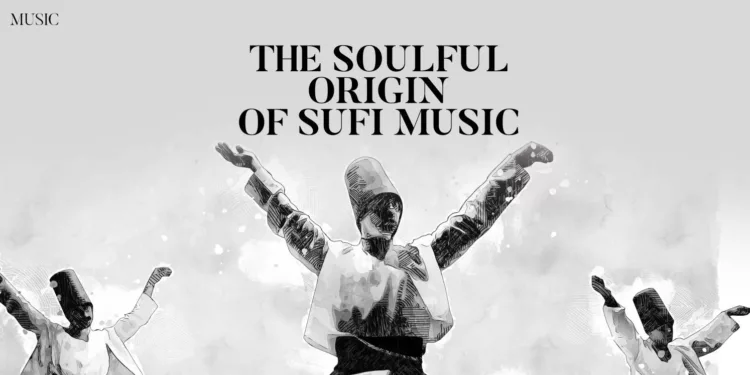In one sense, Sufism has no beginning or end, though it originated around the early Umayyad period, which was during 661–749. From that time to the present day, Sufism is seen as an ode to connect with the divine through utmost love and devotion. Sufism is said to be derived from the word ‘suf’, which means wollen garments that were worn by the mystics. The origin can also be found in the words ‘safa’, meaning purity, and ‘sophos’, whose definition is wise. These three words form the crux of the meaning of Sufism, which is also known as Tasawwuf in Arabic.
A branch of Islam, its main core is the association of mysticism, where true tranquillity can only be found in the adobe of the almighty. This phrase properly defines the beauty and soul of this mystic body, ‘Sufism is to possess nothing and be possessed by nothing,’ which literally means that in order to be set free from the clutches of materialism and worldly lies, it is important to give up all sins and be free at heart.
A Sufi mystic walks on the path of God each and every moment, whose penultimate goal is to get rid of the pollution of discord and be forever united with ‘Him’ for eternity. To achieve this level of trance and connectivity to the self and God, Sufism emerged as a pathway to divinity. Using rich and expressive music and rhythmic verses, it found its true abode, which has left a profound footprint on the fabric of spirituality. As Sufism spread across the globe to different parts of the world, it picked up different flavours and combined them to create a dish that would infuse its scent to whoever wanted a taste of this absolute devotion. Different cultures and traditions intermingled with the heart of Sufism, which gave birth to a new variation of music.
The profound love and longing for God were encapsulated in the soulful lyrics and graceful music. Its most famous custodian is the whirling dervish dance, whose creation is credited to Jalāl Aaad-Dīn Muhammad Rūmī, who is one of the greatest poets that the world has ever seen. This Mevlevi Order was formed, which heralded peace, love and harmony as the foremost ingredients to follow the promenade to Allah. This painstakingly detailed yet mesmerising ceremony is just a small glimpse into the transfixed expression of pure love that the whirling dervishes have for their God. This sacred event commences with a small ceremony, after which the traditional Ney flute absorbs the aura of the surroundings and plays the note, which is imprinted by the galore of true spirituality. The white attire and the Rumi cap worn by the dervishes, with one hand reaching towards the celestial power as they leave behind their sense of self and seek the other side.
Traversing all the way to Southeast Asia, a new form of Sufi music was witnessed, which was Qawwali. This has been performed uninterrupted for 700 years by the Chisti Order, where the lyrical poetry is strung together with the harmonious music and is characterised by clapping ecstatically. This act of clapping by the singers, as well as the listener, creates a singular experience of spellbinding music, bringing believers together in unison. One of the most famous Qawwali singers who spread the music far and wide is Nusrat Fateh Ali Khan, whose commanding vocals and connection with the audience were unmatched. Using the methods of ‘Dhikr-e-Qalbi’, which involves a universal language of devotion to God present with each heartbeat. Other teachings of ‘ilm-e-seena’, which is the realm of inner knowledge coexisting with the ‘ilm-e-safina’, bring forward a frenzied joy of being in the shelter of God. Sufi music is just one aspect of the whole, which flourishes with the shower of God’s infinite love. To get flooded with this type of unfiltered and unadulterated devotion, Sufi music can be seen as a stepping stone or an entire ladder.











